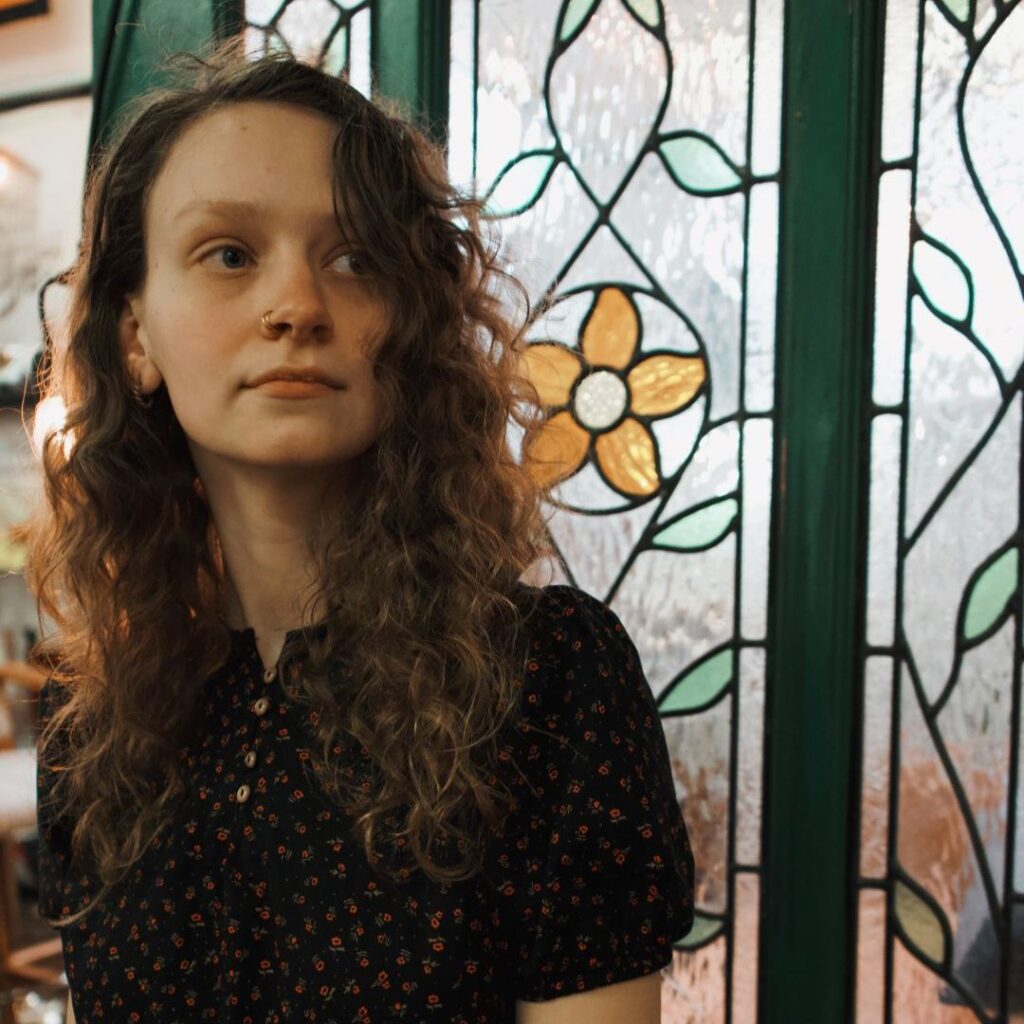We’re thrilled to introduce the 2025 Oregon Literary Fellowship Recipients with individual features on our blog. Out-of-state judges spent several months evaluating the 400+ applications we received, and selected thirteen writers and two publishers to receive grants of $3,500 each. Literary Arts also awarded two Oregon Literary Career Fellowships of $10,000 each. The 2025 Fellowship recipients were recognized at the 2025 Oregon Book Awards Ceremony on April 28, and a public reading event featuring this year’s Fellows took place on July 8 at Literary Arts.

jessamyn duckwall (they/she) is a queer, autistic poet living in Hood River. They received an MFA in Poetry from Portland State University, and are currently working on their first full-length poetry manuscript. They teach writing at Columbia Gorge Community College, and they also sometimes teach community education poetry workshops. Their work has appeared in local lit mags like Old Pal, Kithe, and Scavengers, as well as farther-reaching publications such as Josephine Quarterly and Radar Poetry.
Q & A WITH LITERARY ARTS
What excites you most about receiving an Oregon Literary Fellowship?
Frankly, during a time in which someone in a major leadership position in this country has said many bizarre and untrue things about autism, including a blanket statement about autistic people not being able to write poems, I feel proud to be not only writing poems as an autistic person but actually recognized by organizations like Literary Arts for my work as a poet. Receiving this fellowship empowers me to continue writing poems.
How would you describe your writing process or creative practice?
I think of writing as a kind of spellcasting, in the sense that words can alter the fabric of reality just having been uttered or written down. I often practice writing and divination (usually through tarot) concurrently, so writing becomes a query into what is ultimately unknown—a continual reaching towards impossibility. So, a lot of my process has to do with entering a state of consciousness in which I can let something I may not understand come through. But the other side of it is there’s a lot of accrual that happens, very gradually—of images, turns of phrase, dreams, individual words… Sometimes a phrase I wrote down or a dream I had six months ago or even years ago will enter a poem in a way I didn’t plan or expect.
What authors or books have shaped you the most as a writer?
Selah Saterstrom’s Ideal Suggestions and CAConrad’s concept of (soma)tic poetry rituals come immediately to mind in terms of a framework of my poetics—Saterstrom for her elucidation of the relationship between writing and divination; Conrad for their commitment to a radically embodied and ritualistic practice. I deeply admire the work of Lucie Brock-Broido, Brigit Pegeen Kelly, Diane Seuss, Anne Carson, Clarice Lispector. I have a sort of completist special interest in Sylvia Plath. Gabrielle Bates’ Judas Goat. Mary Szybist’s Incarnadine. Kathleen Peirce’s The Oval Hour. Leila Chatti’s Deluge. Stephanie Adams-Santos’ Dream of Xibalba. Diana Khoi Nguyen’s Ghost Of. Anaïs Nin’s House of Incest. I could keep going.
Are there any Oregonian writers you look to for motivation or inspiration?
Michele Glazer taught me to appreciate silence as an animate presence/absence in poetry. She taught me to follow my impulses towards strange syntax. Her attention to my poems has been integral in my development as a poet. Consuelo Wise encouraged me to be with my grief and to pay attention to it with a poet’s eyes and heart. She helped me to learn how to stay inside a poem and go deeper than I otherwise would have. The counsel of both these poets has been a blessing to my life, and reading their work—poems of/from/within grief, especially—has been instructive and inspiring to me.
What projects are you working on right now?
I’ve been looking for a home for my first collection of poems, and I find myself in an interesting in-between space in which wisps of new projects come through to me, but I don’t know where any of it will lead, so really I’m just writing new poems as they come—which, lately, is slowly. I have an erasure practice I’ve been working on for years, too. I’m making erasure poems from an entire book which has 357 pages. As I write this I’m on page 290.
Do you have any advice for future applicants?
Even if you feel a lull in your practice, you should still apply. For me, receiving this fellowship has reinvigorated me in my commitment to writing. Also, submit the work that most bewilders you in your writing sample. Send in the weird poem.
WRITING SAMPLE EXCERPT
JUDGE’S CITATION
“‘Is that true?’ this question dangles in the beginning of one of duckwall’s most potent poems, ‘Regarding the weeds.’ In this question one feels the weight of a poet’s greatest mission, and sometimes a poet’s greatest deception, a search for truth. What excites me most about duckwall’s poetry is their ability to deftly intertwine the daily with the divine, faith with fault, “and” with “or,” all charged with a voice that embraces fallible multitudes of human perception. Zora Neale Hurston once argued, “Gods will always behave like the people who make them.” duckwall’s poetry helps to erase the border between the mortal and immortal to reveal a dialectic where divinity lies in the eye of the beholder, and music resounds in the ears of each willing reader.”
– Kweku Abimbola

